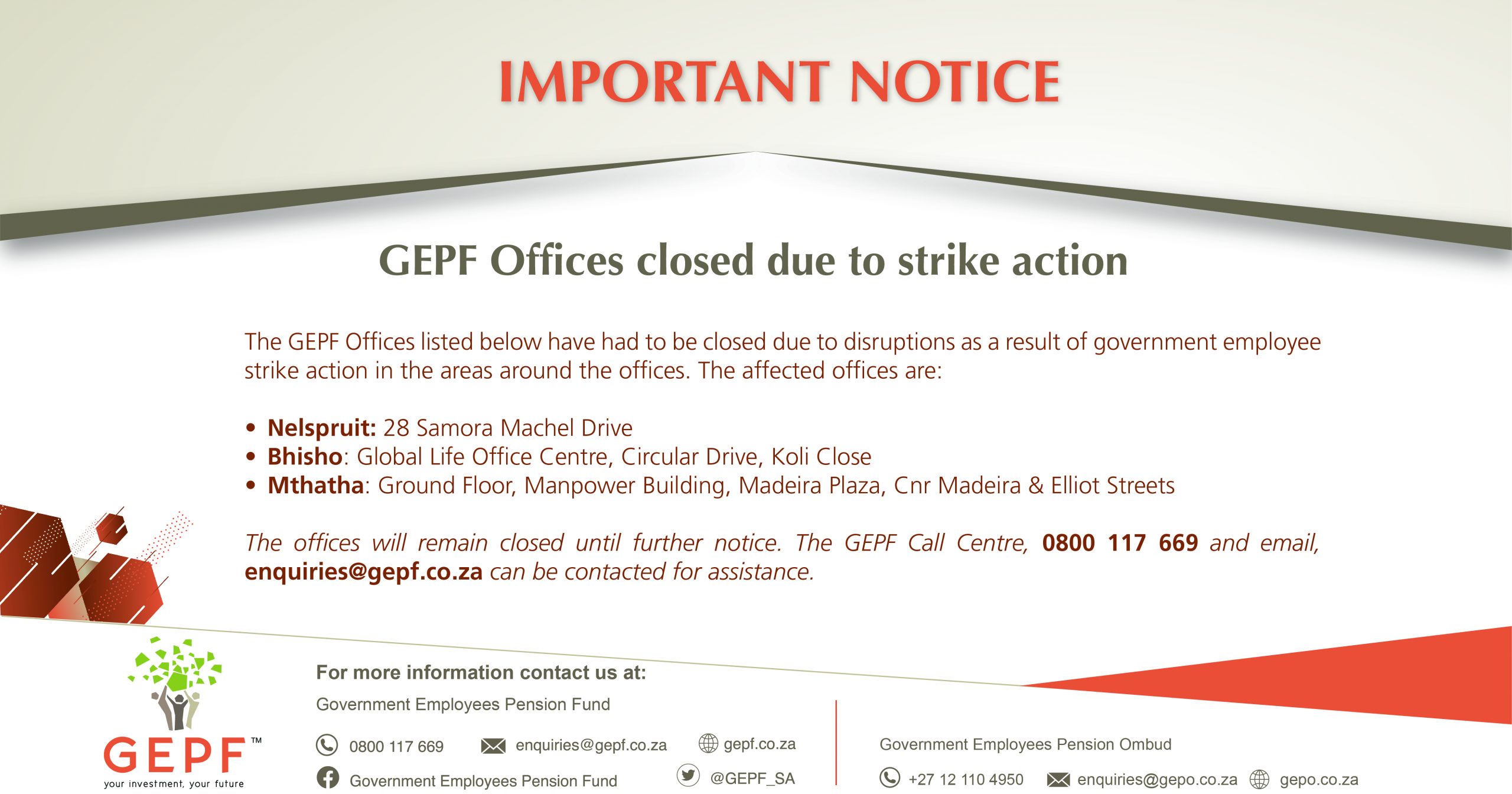Divorce Benefit
From debt approach to service reduction approach
Following the gazetting of the Financial Matters Amendment Act, 2019 on 23 May 2019, the Government Employees Pension Fund (GEPF) no longer be subjecting members to a debt model in executing divorce orders. Instead, the new law amendment provides for the reduction of pensionable service years of GEPF members to take into account the amount paid to a former spouse in terms of the divorce order.
This amendment to the law removes the notional pension debt concept that accrued to the GEPF member when a portion of their pension was paid out to their former spouse by the GEPF as a divorce settlement.
The new amendment now ensures that rather than creating a debt, there will be an adjustment to the member’s pensionable service years following the payment of a divorce settlement by the GEPF. This means that the benefit that will be paid to the member upon exiting the GEPF will now be decreased by reducing the members’ years of pensionable service to take into account the pension amount that was paid to the spouse upon divorce.
It is important to note that members will still receive their benefit entitlement after the reduced pensionable service has been effected, that is their benefit will be calculated on the adjusted pensionable service. Members who retire and have more than ten years of pensionable service will still be entitled to a lump sum and a monthly pension upon existing the fund, however they will receive this based on reduced value in line with their reduced years of service.
What is Clean Break service adjustment approach?
The Clean Break service adjustment is the approach that the GEPF will apply when a portion of a member’s pension interest is paid to a former spouse in terms of a Decree of Divorce. In terms of this approach, the member’s pensionable service period will be reduced to take into account the fact that the Fund has paid out a portion of member’s pension benefits earlier than when the member exits the Fund.
Why is GEPF applying this method and who approved it?
This new approach is being implemented following concerns raised by members that the previous notional debt approach impacted them negatively. This new approach was gazetted on the 23 May 2019 as part of the Financial Matters Amendment Act, 2019. It was approved by the Board of Trustees of the GEPF as well as by members and the employer through a resolution of the Public Service Coordinating Bargaining Council (PSCBC). This new approach will make it easier for a member to predict their pension benefits upon exit.
What exactly is going to happen when a member divorces and a spouse claims against their pension?
In terms of the service reduction approach, a member’s pensionable service will be reduced to take into account the amount paid to the ex-spouse. The amount paid to the ex-spouse as per the divorce order will, on the advice of the actuary, be converted to pensionable service years and the member’s pensionable service years will be reduced accordingly.
When the divorced member exits the Fund, their benefit will be calculated on the reduced pensionable service years. It is however important to note that the Fund will still recognise the actual pensionable service years of the member (before the reduction but not for purposes of calculating the benefit) and the member will remain entitled to the nature of the pension benefits based on their actual pensionable service years. This means if the member is entitled to a gratuity and an annuity based on actual service years, they will still be entitled to a gratuity and annuity but it will be calculated on the reduced pensionable service.
The GEPF is currently developing the GEPF rules that will govern the implementation, following the law change. It is expected that this process will be finalised in July 2019 and the implementation of the new service reduction rules will come into effect as of 01 August 2019. This means that as of 1 August 2019 the service reduction model will be used for all divorce orders granted after 01 August 2019 where the GEPF is ordered to effect payment of a portion of the pension interest to an ex-spouse.
Is the new law different from the previous practice of debt?
Yes, once the GEPF implements the service reduction approach, all future divorces granted after such date that is subject to clean break will be processed in terms of the service reduction approach. For such divorces no notional debt will be recorded against the member’s pension record. The member’s pensionable service will automatically be reduced equivalent to the amount paid to the ex-spouse as per the divorce order.
What are the advantages of the service adjustment approach to members?
It allows for greater certainty for members in respect of their eventual pension benefits on exit as it is easier for members to estimate their pension benefits on exit.
When does it start and end?
The new approach will be effective as of 1 August 2019. Implementation will be subject to the rules of the GEPF being amended and the administration systems being configured to accommodate the change in approach.
Does this change recognize divorce in cases of a customary marriage?
Yes, if all legal requirements are met.
What happens to those members who were affected by the old debt approach? Can they convert to the new service reduction approach?
The amendment to the GEP Law, 1996, and rules provide for a transitional measure. This means that the law amendment allows for the following:
Members who had payments of pension interest upon divorce prior to the implementation of the service reduction approach have a period of 12 months within which to notify the GEPF whether they wish for the reduction of their pension benefit to be dealt with in terms of the debt approach or as per the amended legislation i.e. the service reduction approach.
If such members do not notify the GEPF of their choice within the 12-month period, the reduction will automatically be dealt with in terms of the amended legislation, namely the service reduction approach. Such members are given an option to switch from the debt approach to the service reduction approach or to remain on the debt approach. The Fund will contact all the affected members and provide them with the different options.
How do I stop the debt repayments on my salary as I convert to service adjustment approach?
You will have to contact your employer to stop this deduction.
Is it legal for GEPF to pay my ex-spouse from my pension?
Yes. The Fund is merely giving effect to the court order based on the provisions of the divorce between the parties.
Does GEPF need my permission before paying my ex-spouse/partner? Can I refuse?
No. The court orders the Fund by the Decrees of Divorce to pay ex-spouses and the Fund is compelled to comply with the order.
What will happen if the service adjustment approach leads to my retiring without qualifying for pensionable period or post-retirement medical subsidy? How will this work?
The Fund will still carry the actual service of a member and a member may still qualify for their post-retirement medical subsidy based on the actual service. The Service Reduction approach will not affect the qualification or not for post-retirement medical subsidy and will affect the calculation of their pension benefit only.
How does divorce affect my benefit?
Members who are in the process of a divorce must take note of the financial implications on their pensions, in the event they have agreed to share their pensions with their former spouses.
Once the GEPF receives a divorce decree that indicates that the divorcing parties have agreed or been ordered to a division of pension, the Fund has to honour the court order by paying the former spouse as agreed by both parties or ordered by the court.



